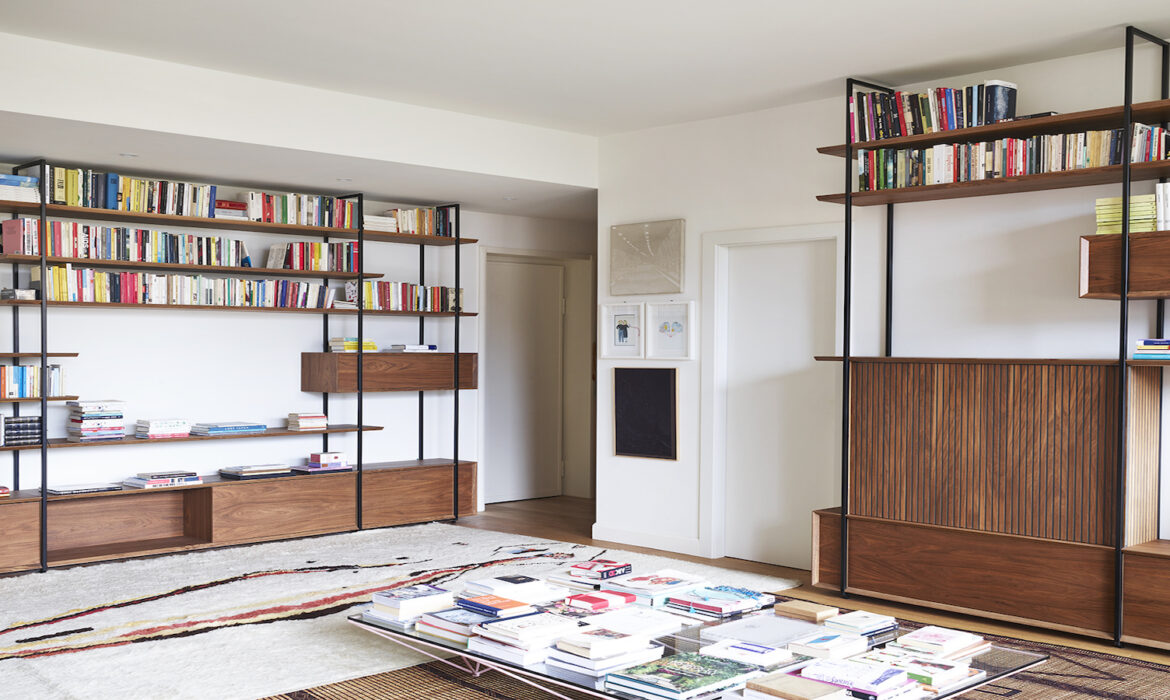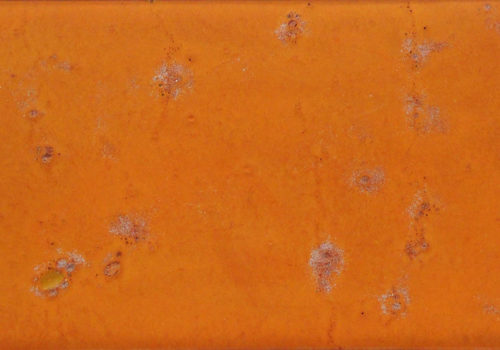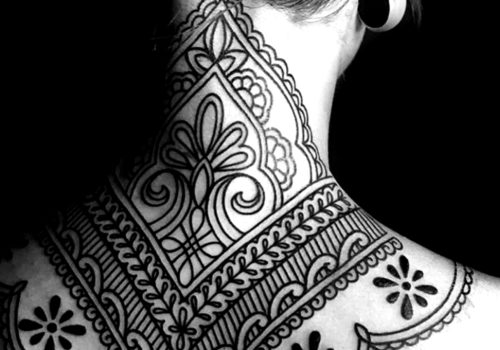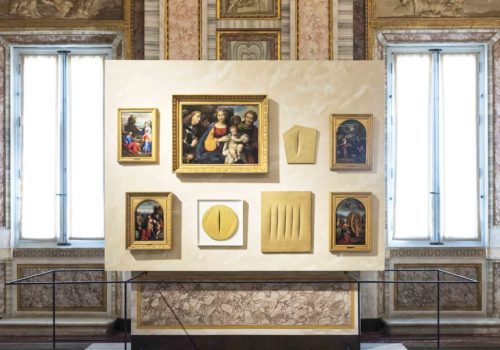From Acerbis to Desalto, the young architect from Milan seeks the essence of craftsmanship and production
A designer-entrepreneur with an empirical approach. Wood is his world, but with a marked sensitivity towards conceptualization and a return to the purity of design filled with meaning and content, and no need for artifice. A carpenter with a pencil, a designer with a jackplane. «Material and design share a heart, they live in symbiosis, they shape each other. The two sides of the coin look at each other, the artisan takes the hand of design and vice-versa. They are connected, I couldn’t be just one of the two. I am a designer-artisan».
Giacomo Moor, born in 1981, from an English family but born in Milan, graduated from the Politecnico (with a thesis on wood published by Abitare) before founding his cabinetmaking workshop on a side-street of Via Padova. The choice of place is not random: intersection and joints, humanity without glamour. His style: removed from the mainstream and trends. The essence. In the studio, located in a former industrial factory where the top floor houses an area dedicated to design and the ground floor hosts a highly modern carpentry shop, there are 14 employees. Fourteen engaged young professionals. This is where they design, think and build for galleries, private clients and companies such as Acerbis, Memphis, ProjectB, Yoox, Environment Furniture, Desalto. In 2013 he produced his first collection, Attraverso. Soon after he created Metropolis and Palafitte.
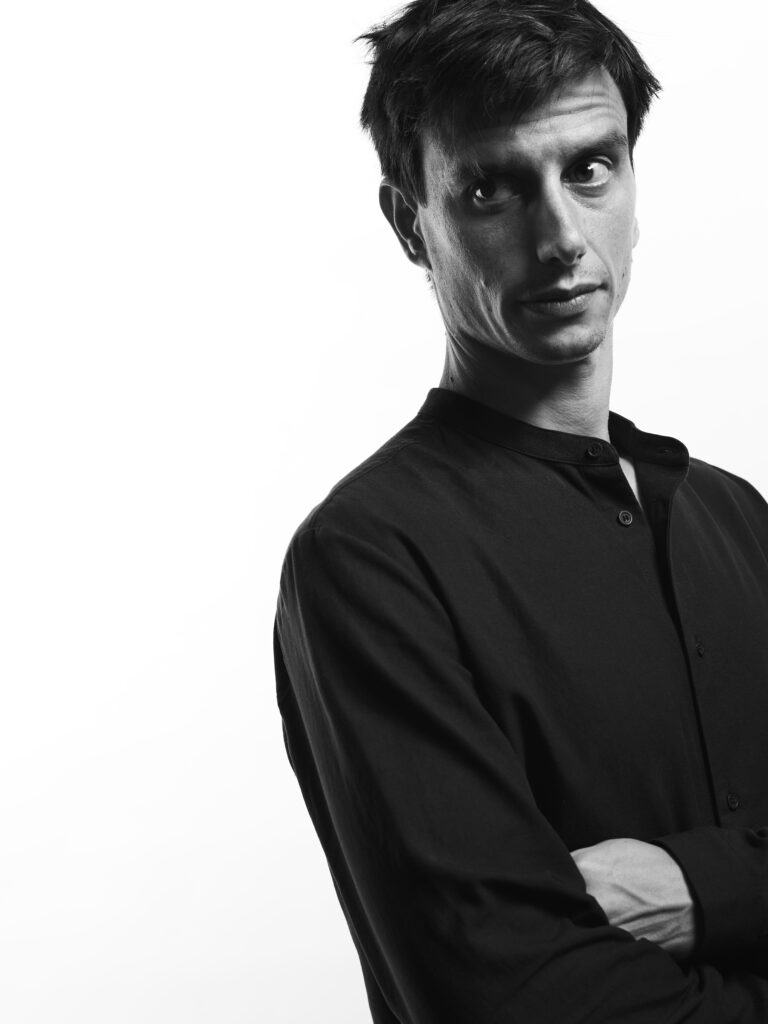
Giacomo Moor © Omar Sartor
His idea of design has led to many successes: in 2016 he won Elle Décor’s “Young designer talent of the year” award and was proclaimed Best Young Designer at the Salone del Mobile in Milan. In 2017, he won the Wallpaper Award for the Legnamè kit.
«My long practice, during my university years, in the workshop of a family friend (ndr Marco Lissoni), where I first went to sweep the floors, gave me a passion for this material with its knots, its flaws which harbour so many opportunities, its veins, the signs of time and memory».
Moor doesn’t conceal his constant experimentation, his love for this material which he personally selects. The wood is European: French, Croatian, Slovenian, the suppliers are in Brianza. Sustainability is a brand, I choose the plants, the boards. But here we manage the process from A to Z: from the ideation to the installation in the home. 80% of our commissions are with private clients, custom-designed projects. The remaining 20% are products for companies and limited editions for galleries. The private clients are the gasoline, companies and galleries provide the oxygen».
The market, obviously, is always there and necessary. But it has changed. The new reality is that of a global market where what counts are, on the one hand, economic strategies and on the other, the capacity to reclaim a personal cultural identity. Industry and designers must adjust to these dynamics, and Moor does so coherently. He has learned to follow these trends, creating a solid design made to last, with no allusions to fashion trends, with a great deal of rigour. Without getting carried away by the obsession for modernization without authenticity. «I start designing at 5:30 in the morning, completely alone. Then I organize the works, put all the pieces in order».
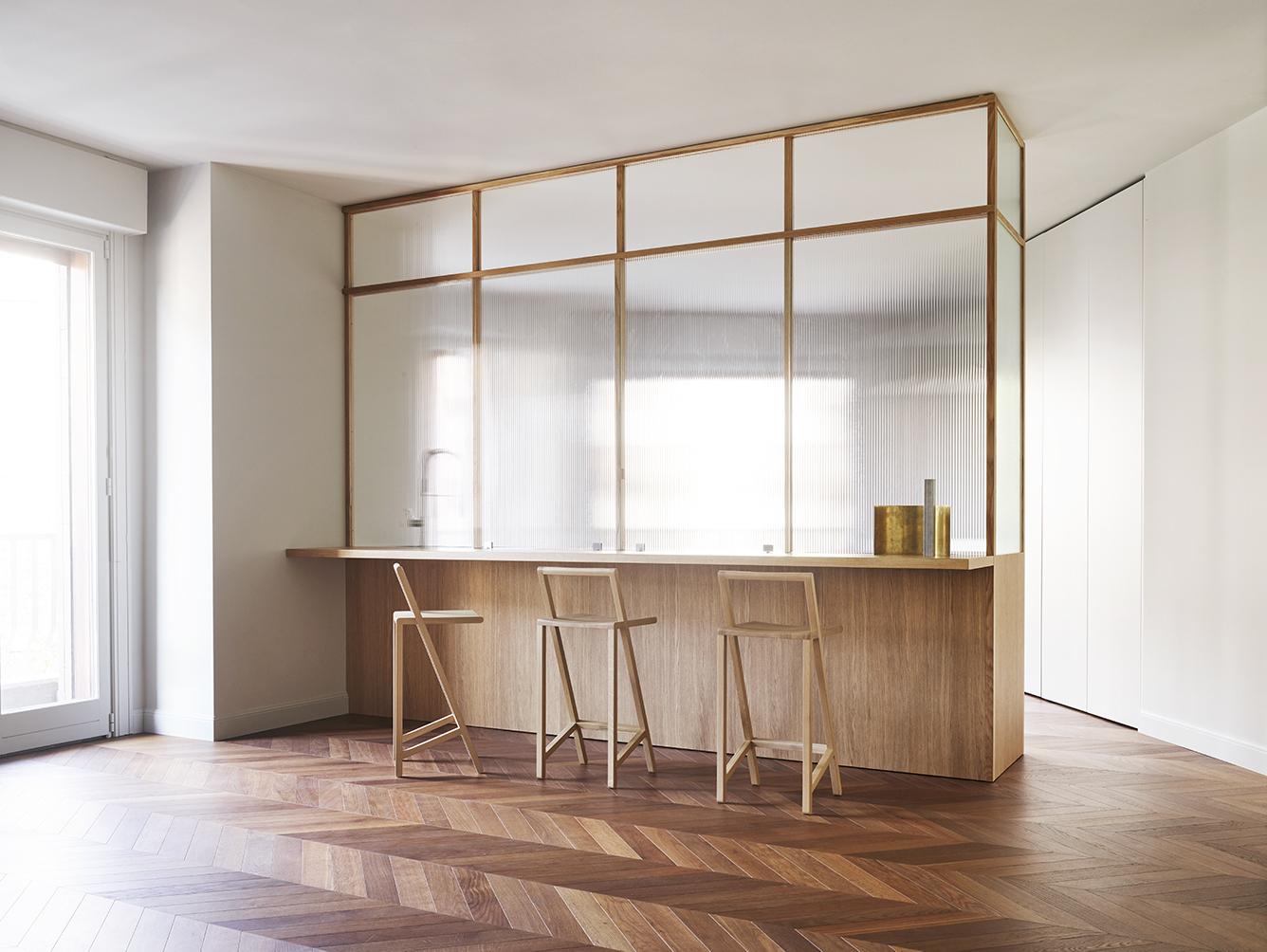
© Omar Sartor
But it is not just the market that has changed, it is also the moment in history. Covid has shifted our priorities, the practices of daily life and as such has modified places, decelerated movements. This transformation will also come to design, which has pursued the rapid pace of fashion. «First, the way we communicate architecture has changed, just consider that the Salone del Mobile did not take place, and it remains at risk this year too. This is a world that needs product communication, so there will certainly be consequences to the fact that we will no longer be able to physically enjoy the object like before. Communication will change, but so will the context, the circumstance, the environment. Today, we have had to experience the home in ways different from before, the spaces now have a different meaning for us than six months ago, and design will adapt to all of it. For us it will be a new trip and new scenarios. The concept of coexistence, of sharing, will live in the new furniture. We will rethink our homes. We will also think of beauty again, the fact that we will perhaps have to return to the origins of design and contain the drift away. Even if, let’s be honest, any product, even when it is conceived for everyone, cannot boast controlled costs. A good starting point is in the thinking process: reduce all the trimmings».
Because as Castiglioni wrote in Good Design: «Whatever you study, you will discover that the good and useful things are also elegant and beautiful».
© ALL RIGHTS RESERVED
Translation by: Olga Barmine


